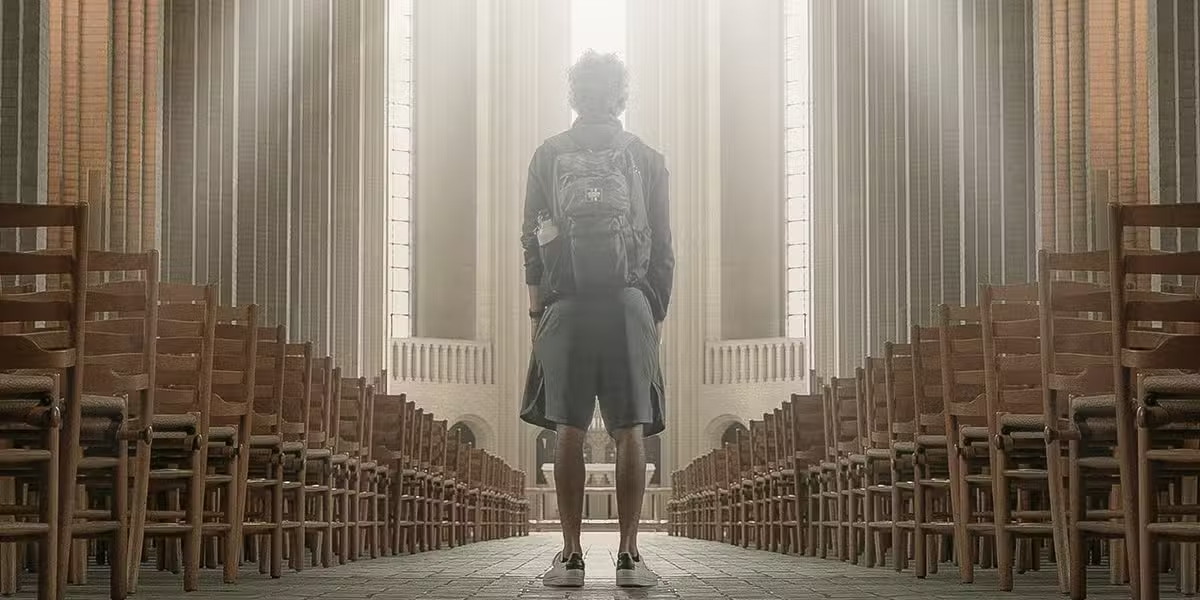READ
LK 4:21-30
Jesus began speaking in the synagogue, saying:
“Today this Scripture passage is fulfilled in your hearing.”
And all spoke highly of him
and were amazed at the gracious words that came from his mouth.
They also asked, “Isn’t this the son of Joseph?”
He said to them, “Surely you will quote me this proverb,
‘Physician, cure yourself,’ and say,
‘Do here in your native place
the things that we heard were done in Capernaum.'”
And he said, “Amen, I say to you,
no prophet is accepted in his own native place.
UNDERSTAND
by Father Greg Friedman, OFM
A favorite Christian writer of mine, Frederick Buechner, once wrote that there’s no record of anyone inviting a prophet home to dinner more than once. Buechner’s quip was his way to define the role of the biblical prophets—certainly they were controversial figures!
Today we hear God choose Jeremiah for that role. God warns the prophet that his message to the kings and priests of Judah will be so challenging that he’ll meet with opposition. Biblical prophets weren’t out to make enemies, but felt impelled to speak the truth–God’s truth–with love. It just so happened that their message was often “tough love.”
Jesus in our Gospel today, is a prophet visiting his hometown. He anticipates resistance, stating clearly that no prophet is ever accepted in his native place. His words prove true as the people rise up to throw Jesus over a cliff!
Few of us are called to be prophets—but I suspect we can identify some contemporary figures who fit that role. Pope John Paul II often challenged the Church and the secular world with his teaching of the Gospel on a variety of subjects from abortion to capital punishment to social justice.
How do we accept the prophetic message we hear proclaimed each Sunday? And would we invite the bearer of that message home for Sunday dinner?
DISCUSS
by Father Dan Kroger, OFM
- In the first reading, God tells Jeremiah that he was chosen to be a prophet. Have you ever felt that God chose you and knew you before you were born? If so, in what ways? God also tells Jeremiah to speak as he is told and not to worry because God will protect him and make him strong. Who are the ones who were opposed to Jeremiah?
- Paul writes to the Corinthians in this week’s second reading about the “greatest spiritual gifts.” He urges them to live in love, because without love they are nothing. How does Paul describe what love does in our lives as disciples of the Lord? Paul says that love is the greatest gift. Who gives that gift to us?
- The Gospel says that Jesus, according to his custom, went into the synagogue of Nazareth on the Sabbath day. What is a synagogue? What is the Sabbath day?Jesus was asked to read from the book of the prophet Isaiah. The people spoke highly about him and his wisdom. But they got angry at him. Why? What were they going to do to him?
ACT
by Susan Hines-Brigger
- This week’s second reading is a very popular one to use for weddings. Ask your parents or grandparents what readings they included in their wedding ceremony.
If you were planning a wedding, what readings would you include in the ceremony? - Think of someone with whom you struggle to get along. Make an effort to come to some peace with him or her either in person, if possible or desirable, or by saying a prayer for him or her. Visit our prayer page to get started!








